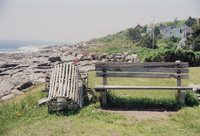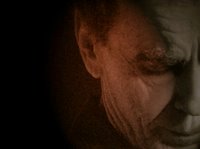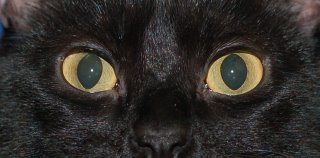
Back in the day, there was an expression ....."Sex, drugs, and rock 'n' roll." But if you loved folk music, there was a variation..... "Music, sex and cookies."
When I think about the folk music that I love so dearly, I think of Dylan, Phil Ochs, Tom Paxton, Christine Lavin, Elizabeth Cotton, Steve Goodman, Arlo Guthrie and Tom Lehrer .... from protest songs to satire and everything in between. And I think of a time when there was a war going on. We lived in a Back Bay apartment then, two rooms and a Murphy bed. We listened to the clarinet player across the alley practicing at all hours of the day and night. We watched the cat sit on the window sill and coo at the pigeons. Evenings, the front steps of all the buildings would fill up with the eccentric and colorful people that made up the neighborhood. We ate at small out of the way places, things like fondue and cheap wine. We watched protesters gather and the police break them up. We wore jeans and beads and long hair and thought we would live and love forever. We were young and idealistic, dedicated and driven. We were youth, the hope of tomorrow.
It was the night after the Kent State shootings and there were more people out then usual. They were drinking wine, some were smoking a little dope, most were gathered in small groups around portable radios. Snatches of conversations drifted by and bits of music. Sheets turned into banners and painted with slogans - Peace Now! - hung from open second and third story windows. It was a still May night, the best kind of New England spring evening. We were a neighborhood united and promise was everywhere.
We heard the police before we saw them.
It began as a distant sound not unlike the low rumble of thunder but there was a cadence to it, steady and quick. Heads began to turn toward the sound, trying to identify it. It became sharper, louder and clearer. People began to clear the street and move upwards on their steps, some sort of left over 60's instinct, I suppose. We all looked toward Huntington Avenue, expectant and a little anxious. No one was prepared for a phalanx of police in full riot gear, marching shoulder to shoulder the width of the street. Their boots were shined, visors pulled over their faces, row upon row upon row. It was an awesome sight.
They passed without incident, no one broke ranks, no one looked sideways and no one changed pace. On the street, no one spoke or jeered, no bottles were thrown. We felt them and the street went into slow motion then froze. It wasn't respect or fear precisely, we were more stunned than anything else. This was a show of force and power the likes of which most of us had never encountered in real life.
That spring passsed into summer and summer into fall. Eventually the snow came, an endless cycle of digging in and digging out. Perpetual cold forced us inward and inside. Streets were often impassable, snow emergencies common, cars were buried under snowdrifts so deep they were unrecognizable. There was no place to get warm.
These days that street has been transformed. The apartment buildings have been converted to luxury condominiums and the neighborhood is exclusive and reeks with the prestige of the wealthy. Classical music and standard poodles reign and in winter the plows lift their blades around the carefully parked expensive cars.
It is, as my cousin Linda wrote, a lesson about the transformation, survival and the mystery of life. The music changes but it plays on.
















